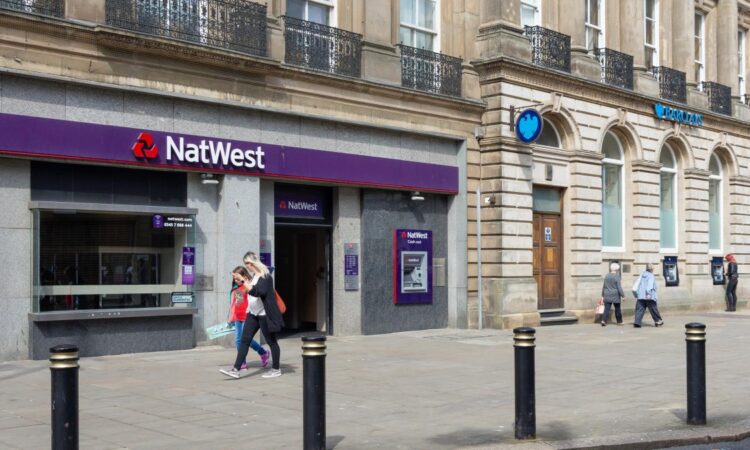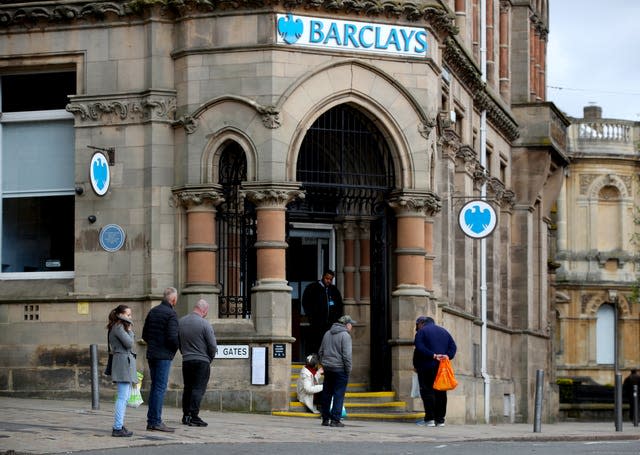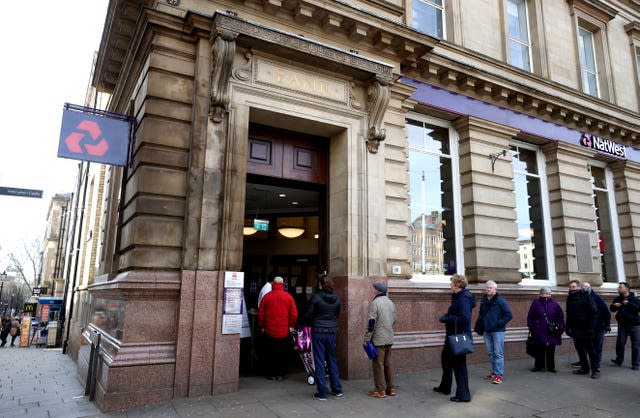
Two of the UK’s biggest banks are poised to face questions over how much they are benefiting from the rising cost of borrowing.
Barclays and NatWest will kickstart the crucial reporting season for the banking sector when they unveil their earnings from the latest financial year.
But they could face fresh demands for a windfall tax if it emerges that profits have got too large in the current high interest rate environment, experts suggested.
“The reality is that banks haven’t been making good money in recent years because interest rates have been so low and their margins have been squeezed,” Gary Greenwood, a research analyst at Shore Capital Markets, told the PA news agency.
“When interest rates went up, that was the opportunity for them to re-establish an economic margin.
“But there is a risk that banks may have gone too far and they have become too profitable again, which is when you start getting questions on whether they should be passing more on to customers, or if there should be a windfall tax.
“If banks want to avoid attracting windfall taxes on these ‘excess’ profits, they may need to consider reinvesting them back into the business.”
Mr Greenwood said it could make more “economic sense” for banks to lower interest rates on loans, rather than raise interest rates on savings.
This is because borrowers are more likely to be suffering from rising rates given the squeeze on household finances, on top of inflationary pressures, so doing so would “improve affordability and so the sustainability of lending”.
But he added: “The banks’ balance sheets are pretty sound so chances are we are not going to see bad debts spiral through the ceiling, which we have seen in past crises.”
Analysts think that Barclays, which will unveil its company results on Wednesday, will reveal pre-tax profits of £1.5 billion for the last three months of the financial year, up from £1.4 billion a year earlier.
It will take its full-year profits to £7.2 billion, a drop from £8.4 billion in 2021.

A US trading blunder will be partly to blame for the decline, having estimated to have cost the group a mammoth £1.5 billion last year after facing a hefty charge.
Net interest margins – which is the difference between what a bank charges for loans and pays for savings – will have been a key driving force for profits and losses last year, according to experts at investment platform AJ Bell.
Barclays’ net interest margin grew to 3% in the third quarter, from mid-2020 lows of around 2.5%, indicating that, like other banks, it had benefited from interest rate rises.
Investors will also be keeping a close eye on the banks’ loan provisions, which have increased recently in efforts to guard against an increase in borrower defaults.
Loan provisions are funds that banks set aside to cover expected credit losses from borrowers who cannot repay their loans.
Barclays is expected to reveal that its credit provisions for the entire year cost a hefty £1.2 billion.
Russ Mould and Danni Hewson, investment experts at AJ Bell, said: “Banks must now provide a current expected credit loss (CECL), so they cannot wait until a loan goes sour – they must make an estimate for a loss if they think it might.
“That’s going to be very interesting at a time when UK consumers’ pockets are being squeezed by inflation.
“Barclays has a £161 billion mortgage loan book, a £9 billion credit card book in the UK and a £24 billion credit card book in the USA,” they pointed out.

Meanwhile, NatWest is expected to reveal full-year pre-tax profits of £5.6 billion, up from £4.3 billion in 2021, according to analysts’ consensus.
It could also see total income jump to more than £13 billion for the full year, up from £10.4 billion a year earlier.
The lender will share its full-year results on Friday.





